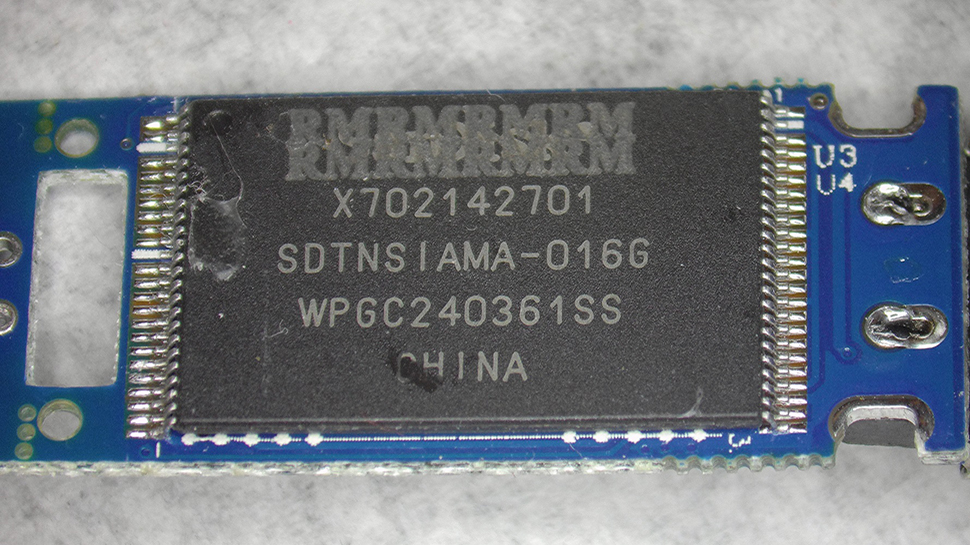"Reduced storage capacity": Data recovery firm reveals worrying trend amongst flash drives and microSD cards defective components are being salvaged — here's what you can do to avoid being a victim
CBL Data Recovery says poor quality chips from big name brands are being resold

CBL Data Recovery has identified a concerning trend in data recovery requests, indicating a decline in the quality of newer memory chips used in microSD cards and USB flash drives.
The German firm says that the most significant issues are found in off-brand products, which are becoming increasingly unreliable.
USB sticks with the NAND chip manufacturer's logo removed are frequently seen in CBL's data recovery lab, suggesting that chips failing quality control checks from major manufacturers like Sandisk and Samsung are being resold with reduced memory capacity specifications.
What can you do?
“When we opened defective USB sticks last year, we found an alarming number of inferior memory chips with reduced capacity and the manufacturer's logo removed from the chip. Clearly discarded and unrecognizable microSD cards are also soldered onto a USB stick and managed with the external one on the USB stick board instead of the microSD's internal controller," explains Conrad Heinicke, Managing Director of CBL Datenrettung GmbH.
“These USB sticks of dubious quality were mostly promotional gifts, but there were also branded products among them. You shouldn't rely too much on the reliability of flash memory. This is also in view of the fact that technological developments are making NAND chips in flash storage media increasingly vulnerable.”
The rise in storage density has led to a decrease in writability (endurance) and storage capacity (retention), increasing the risk of charge differences, which are read as bits, becoming unreadable due to the aging of the insulation layer holding these charges. This issue becomes more pronounced with higher storage densities.
“Even with high-quality memory chips, the effort that manufacturers have to put into error correction mechanisms in the controller is enormous. It is not surprising that data loss occurs with USB sticks containing decommissioned chips. Flash memory is practical, but you should be aware that it can lose data if stored for a long time, for example,” adds Heinicke.
To avoid losing data when using USB flash drives and microSD cards, CBL Data Recovery has several suggestions:
- If you frequently write and delete data on USB sticks, you should use several sticks in rotation - flash memory chips only offer a limited number of deletion cycles.
- Avoid using tiny USB flash drives. The force exerted when plugging them in often impacts the chips directly. Furthermore, these compact models tend to have poorer heat dissipation compared to their larger, more robust counterparts.
- As a general rule, always select the "safely remove" or "eject" option and wait for the operating system's confirmation before removing the data storage device.
More from TechRadar Pro
- These are our picks of the best flash drives around right now
- We've also rounded up the best secure drives
- I want to buy a 1TB USB Flash Drive - what steps should I take?
Sign up to the TechRadar Pro newsletter to get all the top news, opinion, features and guidance your business needs to succeed!

Wayne Williams is a freelancer writing news for TechRadar Pro. He has been writing about computers, technology, and the web for 30 years. In that time he wrote for most of the UK’s PC magazines, and launched, edited and published a number of them too.